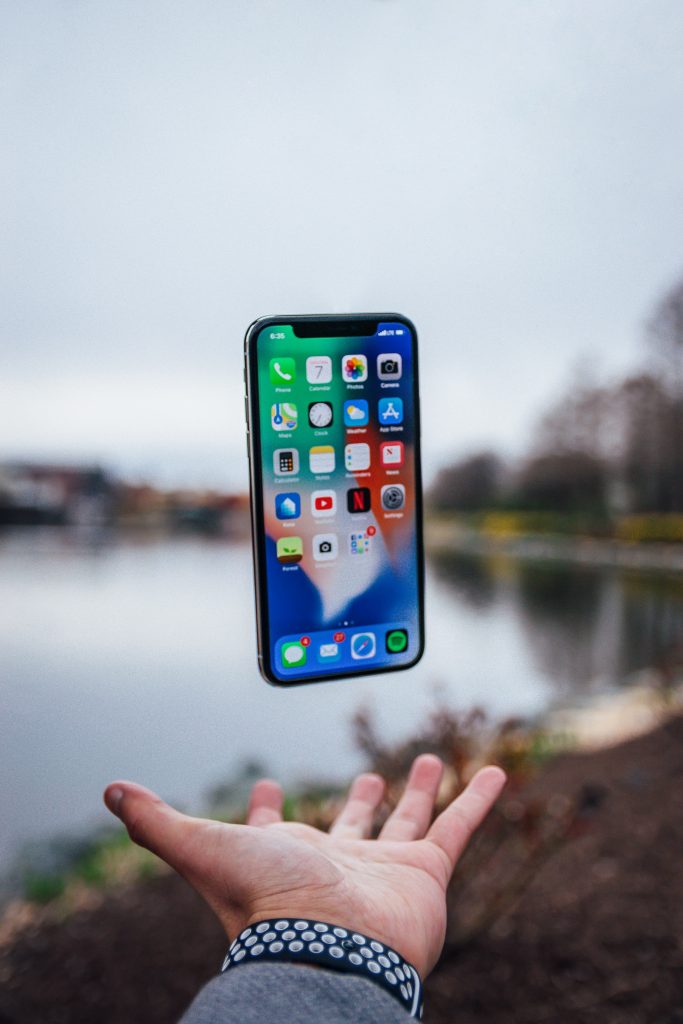Travelling has always been about discovery — new cultures, breathtaking landscapes, and unforgettable experiences. But in the digital age, travel isn’t just about where you go, it’s also about how you get there, how you plan, and how technology transforms your journey at every step. From AI-generated itineraries to luggage that charges your devices, the role of technology in travel has evolved into something far beyond convenience. It’s now a vital part of modern exploration.
In this article, we’ll take you on a deep dive into how technology shapes travel today. We’ll explore smart tools, apps, and innovations that make life on the road easier, safer, and more personalised than ever before.
The Evolution of Travel Technology
Not so long ago, travelling meant relying on guidebooks, physical maps, and word-of-mouth recommendations. Flights were booked through travel agents, hotel reservations were made over the phone, and travellers relied on paper tickets for everything.
Fast-forward to today, and technology has completely transformed this experience:
- Online booking platforms like Booking.com, Expedia, and Airbnb allow travellers to secure flights, accommodation, and tours in seconds.
- Mobile maps and navigation apps such as Google Maps and Waze provide real-time directions, eliminating the need for physical maps.
- Digital boarding passes and mobile wallets have made paper tickets almost obsolete.
- Artificial intelligence (AI) powers recommendation engines that suggest personalised experiences based on your interests.
This shift isn’t just about convenience; it’s about empowerment. Technology has placed control directly into the traveller’s hands, creating journeys that are more flexible and customised.
AI-Powered Itineraries: Personalised Travel Like Never Before
One of the most exciting innovations in travel is the rise of AI-powered itinerary builders. No longer do travellers need to spend hours researching what to do in a new city. Instead, artificial intelligence can create custom itineraries tailored to individual preferences.
Imagine telling an app that you love art, local cuisine, and quiet scenic walks. Within seconds, it could generate a 5-day plan with museum visits, hidden local restaurants, and beautiful trails — all based on your profile.
Benefits of AI Itineraries:
- Personalisation: AI learns from your behaviour and preferences.
- Efficiency: Cuts down planning time significantly.
- Real-time updates: Itineraries adjust to weather conditions, opening hours, and even last-minute cancellations.
- Budget-friendly: AI can optimise travel plans based on your spending preferences.
AI isn’t replacing human travel agents entirely, but it is giving travellers smarter, faster, and often more cost-effective solutions.
Smart Luggage: The Future of Packing
Forget the days of dragging heavy suitcases across airports. Smart luggage is redefining how travellers move. These futuristic bags come with features that go far beyond storage:
- GPS tracking: Never lose your luggage again — locate it via a mobile app.
- Built-in chargers: Recharge your smartphone, tablet, or laptop while waiting at the gate.
- Weight sensors: Prevent overweight baggage fees by checking the weight before you leave home.
- Remote locking systems: Secure your belongings with a tap on your phone.
Brands like Away, Samsonite, and Bluesmart are leading the way in creating luggage that does more than carry — it actively supports your journey.
The Rise of Travel Apps
Mobile apps are arguably the single biggest driver of convenience in modern travel. Whether it’s flight check-ins, restaurant reservations, or language translation, there’s an app for almost every travel need.
Must-Have Travel Apps in 2025:
- Google Maps: Still the go-to for navigation.
- TripIt: Organises all your bookings and itineraries in one place.
- Duolingo: Learn essential phrases in local languages.
- Skyscanner: Find affordable flight deals.
- XE Currency: Quick currency conversions anywhere in the world.
These apps not only simplify the process but also reduce stress — a huge win for any traveller.
Virtual and Augmented Reality in Travel
One of the most fascinating travel innovations is the use of VR (Virtual Reality) and AR (Augmented Reality). Before even stepping foot in a destination, travellers can preview experiences. Hotels use VR tours to showcase rooms, museums use AR guides to enhance visitor experiences, and tourism boards create VR campaigns to inspire future travellers.
- Virtual tours: Preview hotels, cruises, and tourist attractions before booking.
- Augmented experiences: Use your phone to see historical reconstructions of ancient sites.
- VR headsets: Travel from home by immersing yourself in far-off locations.
This technology not only enriches travel planning but also bridges the gap between curiosity and commitment.
Safety and Security: Tech to the Rescue
Technology isn’t just about convenience; it’s also about safety. From digital emergency contacts to real-time weather alerts, innovations ensure that travellers stay informed and secure.
- Real-time translation apps break down language barriers in emergencies.
- Digital health passports streamline vaccination and health documentation checks.
- Wearable devices can monitor heart rate, track steps, and send alerts in case of distress.
These tools provide reassurance, particularly for solo travellers or those exploring unfamiliar destinations.
The Role of Technology in Travel Payments
Cash once ruled international travel, but technology has shifted spending habits dramatically. Today, travellers rely on digital wallets, contactless payments, and even cryptocurrencies to cover expenses.
- Apple Pay and Google Wallet let you pay with just your phone.
- Prepaid travel cards reduce the risks of carrying cash.
- Cryptocurrency payments are accepted in select hotels and airlines, signalling a growing trend.
The move towards digital payments ensures faster, safer, and more transparent transactions worldwide.
Smart Hotels and IoT in Hospitality
Hotels are also embracing the future with smart technology. The Internet of Things (IoT) is transforming how guests interact with hotel rooms and services.
- Smart rooms: Adjust lighting, temperature, and curtains using your phone.
- Voice assistants: Order room service or ask for tourist recommendations.
- Mobile check-ins: Skip the front desk entirely and unlock your room with a smartphone.
Luxury hotels are leading the charge, but these innovations are trickling down to budget-friendly stays, making technology-driven comfort more accessible.
Connectivity on the Go: WiFi Everywhere
The modern traveller demands connectivity, and technology has delivered. Free WiFi in airports, portable hotspots, and international SIM cards make it easy to stay online anywhere in the world.
For remote workers or digital nomads, this accessibility has created a new lifestyle — working while travelling the globe. Video calls, online meetings, and collaborative work tools are now possible from beaches, mountain cabins, or even airports.
Technology and Sustainable Travel
Travel tech is also addressing sustainability. Apps and platforms now allow travellers to offset carbon footprints, book eco-friendly hotels, and find green transportation options.
Examples include:
- Carbon offset calculators integrated into flight booking platforms.
- Eco-accommodation directories showcasing hotels with green certifications.
- Bike and scooter-sharing apps reducing reliance on cars.
This movement ensures that future travel innovations are not only about convenience but also about responsibility.
The Entertainment Side of Travel Tech
While much of travel tech focuses on logistics, entertainment plays a big role too. Long flights and train journeys are now far more enjoyable with streaming services, in-flight WiFi, and portable gaming devices.
In fact, travellers are increasingly blending travel with leisure activities like gaming and sports betting. For instance, platforms such as https://www.casinous.com/sports-betting/ allow people to enjoy sports wagering from anywhere in the world, keeping them entertained during downtime in hotels, airports, or even on the beach.
This convergence of travel and digital entertainment shows how technology supports not just the practical side of travel but also its playful, fun side.
Challenges of Technology in Travel
Of course, travel tech isn’t without challenges:
- Over-reliance on devices: Travellers risk losing spontaneity by sticking to AI recommendations.
- Privacy concerns: Data tracking raises security questions.
- Digital fatigue: Constant screen use can distract from real-world experiences.
- Tech malfunctions: Apps crash, WiFi drops, and smart devices can fail at the worst times.
Balancing technology use with authentic exploration is key to a fulfilling journey.
The Future of Travel Technology
So, where is travel technology heading next? Experts predict:
- Hyper-personalisation: AI that not only builds itineraries but anticipates needs.
- Biometric passports: Facial recognition for faster airport security.
- Autonomous vehicles: Self-driving taxis and buses for tourists.
- Space tourism: Commercial space flights opening a whole new era of travel.
As technology continues to evolve, the boundaries of what’s possible in travel will expand further than ever before.
Final Thoughts
Technology has become the invisible companion of every traveller. From booking flights with a tap to exploring virtual tours, staying connected abroad, and even securing luggage with smart locks, innovations are redefining how we explore the world.
Yet, amidst all this advancement, the essence of travel remains the same: curiosity, adventure, and discovery. The difference is that technology now makes the journey smoother, safer, and more exciting.
The next time you pack your smart luggage, use an AI-powered itinerary, or pay with your digital wallet in a foreign café, remember: you’re not just travelling — you’re experiencing the future of exploration.


